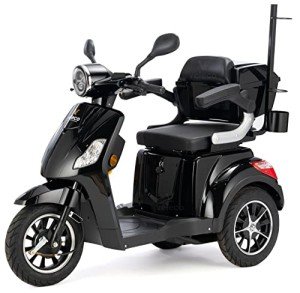Mobility Scooters: A Comprehensive Guide
Mobility scooters have ended up being a necessary mode of transport for lots of individuals facing mobility challenges. This post explores the different aspects of mobility scooters, including their types, advantages, functions, and a guide for potential buyers.
Understanding Mobility Scooters
Mobility scooters are electrically powered gadgets created for people with minimal mobility. They offer a means of transportation for individuals who may have difficulty walking but still wish to keep their independence. They come in different designs and features to deal with a large range of needs.
Kinds Of Mobility Scooters
Mobility scooters can normally be classified into three primary types:
| Type | Description | Best For |
|---|---|---|
| Compact Scooters | These are small and lightweight, perfect for inside and short trips. | Users with limited storage area or those who take a trip frequently. |
| Mid-size Scooters | A balance between portability and stability, appropriate for both indoor and outside use. | Those who need to cover a variety of surfaces. |
| Sturdy Scooters | Large and robust, created for rugged outside use and heavier individuals. | Users requiring extra weight capability or going off-road. |
Secret Features of Mobility Scooters
The choice of mobility scooter often depends on the functions that line up with private needs. Here are a few of the essential features to think about:
- Weight Capacity: Mobility scooters come with various weight limits. It is important to choose a scooter that can sufficiently support the user's weight.
- Range: The distance a scooter can travel on a single charge differs. Depending on user needs, one may select scooters with a range of up to 40 miles.
- Speed: Most mobility scooters can reach speeds in between 4 to 8 miles per hour. Consider what speed is comfortable and safe for the designated environment.
- Turning Radius: A compact turning radius is essential for indoor usage, permitting easier navigation in tight spaces.
- Battery Type: The kind of batteries used can affect the scooter's performance. Lead- click here for more and lithium-ion batteries are the most typical.
Advantages of Using Mobility Scooters
The benefits of mobility scooters extend beyond just transportation. Some essential advantages consist of:
- Independence: Users can browse their environment without counting on caregivers, promoting self-reliance and self-esteem.
- Health Benefits: Using a scooter can encourage outside activity, causing physical and mental health improvements by reducing feelings of isolation.
- Convenience: Scooters can easily be run in numerous environments, whether inside, in shopping malls, or outdoors.
Essential Considerations When Buying a Mobility Scooter
When acquiring a mobility scooter, numerous considerations can assist make sure that you pick the best design:
Assess Individual Needs:
- Mobility level: Consider how much help the person will need.
- Series of usage: Determine where the scooter will primarily be used (indoors, outdoors, on rough terrains, etc).
Test Drive:
- Always test drive numerous designs to find an appropriate fit. Take notice of convenience, ease of steering, and the scooter's responsiveness.
Evaluation Safety Features:
- Look for scooters with sufficient safety functions like lights, indications, and anti-tip designs.
Inspect Warranty and Service Options:
- A reputable service warranty and readily available service options are vital for long-term usage.
FAQs about Mobility Scooters
1. How quick do mobility scooters go?Mobility scooters normally have speeds varying from 4 to 8 mph, with many created for safety rather than high-speed travel. 2. Exist weight constraints on mobility scooters?Yes, mobility
scooters include particular weight limitations, often varying from
250 lbs to over 500 pounds, depending on the design. 3. Can mobility scooters be utilized indoors?Certain models, especially compact scooters, are particularly developed for
indoor usage and are easier to navigate in tight areas. 4. How typically do the batteries require to be replaced?Battery life can vary based on use, but typically, with appropriate care, batteries might last in between 1 to 3 years before needing replacement
. 5. Are mobility scooters covered by insurance?Coverage can vary, however some insurance coverage strategies, including Medicare and Medicaid, may cover part of the expense. It's recommended to check with individual insurance providers. Mobility scooters serve as a
important tool for numerous individuals, enabling them to maintain
their freedom and self-reliance. By comprehending the different types and features of mobility scooters, individuals can make educated choices customized to their particular needs.
Whether used for errands, socializing, or leisurely activities, mobility scooters can boost the lifestyle for those with mobility constraints. Purchasing a mobility scooter is a decision that can considerably impact a person's every day life. Therefore, people need to thoroughly assess their options and pick a model that best lines up with their way of life and mobility requirements
.

